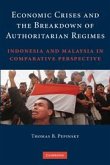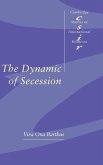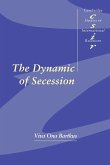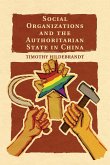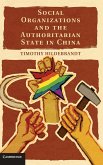Short description/annotation
This book develops a general theory of intolerance of difference.
Main description
What is the basis for intolerance(?)33; This book addresses that question by developing a universal theory about what causes intolerance of difference in general, which includes racism, political intolerance (e.g. restriction of free speech), moral intolerance (e.g. homophobia, supporting censorship, opposing abortion) and punitiveness. It demonstrates that all these seemingly disparate attitudes are principally caused by just two factors: individuals' innate psychological predispositions to intolerance ('authoritarianism') interacting with changing conditions of societal threat. The threatening conditions, resonant particularly in the present political climate, that exacerbate authoritarian attitudes include national economic downturn, rapidly rising crime rates, civil dissent and unrest, loss of confidence in social institutions, presidential unpopularity, divisive presidential campaigns, and internal or external crises that undermine national pride or confidence. Using purpose-built experimental manipulations, cross-national survey data and in-depth personal interviews with extreme authoritarians, the book shows that this simple model provides the most complete account of intolerance.
Table of contents:
1. Introduction: the authoritarian dynamic; 2. Kindred spirits, common spark: the theory of the authoritarian dynamic; 3. Manipulating threat and reassurance: data and methods; 4. The authoritarian dynamic and the politics of fear: Putting the pieces of the puzzle together; 5. Authoritarianism and conservatism across cultures; 6. Authoritarianism and conservatism: how they differ and when it matters; 7. One true people: putting a dace on the theory; 8. One right way: fleshing out the portrait; 9. Manning the barricades: racism and Intolerance under conditions of normative threat; 10. The authoritarian dynamic: implications.
Hinweis: Dieser Artikel kann nur an eine deutsche Lieferadresse ausgeliefert werden.
This book develops a general theory of intolerance of difference.
Main description
What is the basis for intolerance(?)33; This book addresses that question by developing a universal theory about what causes intolerance of difference in general, which includes racism, political intolerance (e.g. restriction of free speech), moral intolerance (e.g. homophobia, supporting censorship, opposing abortion) and punitiveness. It demonstrates that all these seemingly disparate attitudes are principally caused by just two factors: individuals' innate psychological predispositions to intolerance ('authoritarianism') interacting with changing conditions of societal threat. The threatening conditions, resonant particularly in the present political climate, that exacerbate authoritarian attitudes include national economic downturn, rapidly rising crime rates, civil dissent and unrest, loss of confidence in social institutions, presidential unpopularity, divisive presidential campaigns, and internal or external crises that undermine national pride or confidence. Using purpose-built experimental manipulations, cross-national survey data and in-depth personal interviews with extreme authoritarians, the book shows that this simple model provides the most complete account of intolerance.
Table of contents:
1. Introduction: the authoritarian dynamic; 2. Kindred spirits, common spark: the theory of the authoritarian dynamic; 3. Manipulating threat and reassurance: data and methods; 4. The authoritarian dynamic and the politics of fear: Putting the pieces of the puzzle together; 5. Authoritarianism and conservatism across cultures; 6. Authoritarianism and conservatism: how they differ and when it matters; 7. One true people: putting a dace on the theory; 8. One right way: fleshing out the portrait; 9. Manning the barricades: racism and Intolerance under conditions of normative threat; 10. The authoritarian dynamic: implications.
Hinweis: Dieser Artikel kann nur an eine deutsche Lieferadresse ausgeliefert werden.


